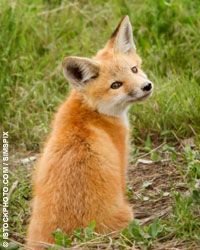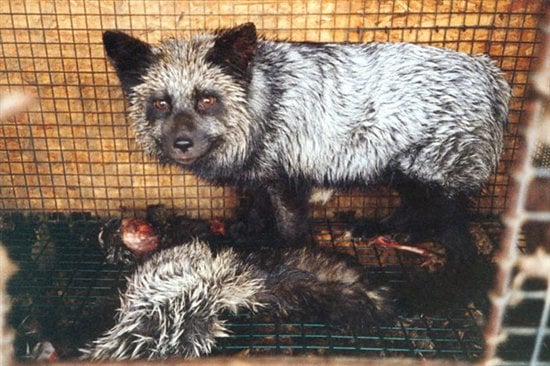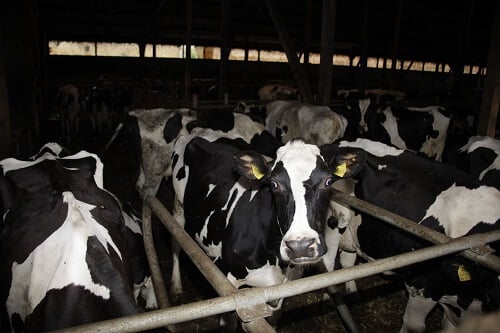Fortunately, we’re becoming more and more aware that the global skins trade is a merciless industry without any compassion for animals. But have you considered how inhumane the conditions are for the workers in this shameful industry? Filth, toxic chemicals, and tons of waste are what surround both human and nonhuman beings in the facilities that breed, slaughter, and process the animals who are exploited for their fur and skin.
The fur industry is archaic. One hundred million animals—including dogs, cats, rabbits, minks, chinchillas, and foxes—are barbarically killed each year for their fur.
They’re often drowned, electrocuted, or skinned alive—and the conditions in which they live before that are unimaginably horrible. They’re confined to tiny cages filled with feces. One million pounds of toxic waste are produced by mink farms in the United States alone. Phosphorus and other toxins such as ammonia are released into the air. Surrounding areas are contaminated and polluted—and these are the same towns where the employees of the fur farms often live.
Animals on factory farms produce 130 times more excrement than the entire human race! Even the U.S. Environmental Protection Agency has admitted that the pollution created by livestock is the greatest threat that our waterways face.
The global leather industry is no better. Nearly 1 billion animals are killed annually for their skins. They’re tortured, mutilated, dehorned, and castrated—just to name a few of the atrocities that they endure during their miserable lives. The working conditions in the tanneries are also appalling. India is one of the world’s largest producers of processed skins. Inside the tanneries there, workers—some as young as 14 years old—are surrounded by toxic chemicals that threaten their health. Barrels of chemicals are strewn along walls. Many workers walk barefoot on wet floors soaked with poison. The air reeks and is so noxious that it makes their eyes sting. Nearby rivers that are also sources of drinking water actually shimmer with the poisons from the chemical runoff of nearby tanneries.
When you buy anything made from an animal byproduct, you’re supporting industries that are destroying animals, humans, and the planet as a whole. It’s tragic, and we must make a change! Stop buying fur and leather items. Start buying vegan alternatives. It’s unnecessary to use animal-derived materials in furniture, fashion, accessories, and household goods. In your home and office, replace them with the following:
- Bamboo
- Canvas
- Cotton
- Hemp
- Linen
- Rubber
Vegan options are typically hypoallergenic and made without blood or tragedy attached to them. Many synthetic fabrics are now manufactured using recycled items such as plastic bottles and even old TV sets. Going vegan saves not only animals but also humans and the entire planet.
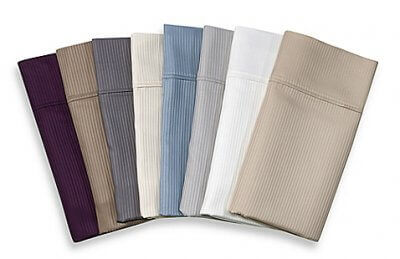
Tencel Lyocell 500-Thread-Count Stripe Sheet Set
Look for designers, stores, and brands that exclude furs and skins from their collections. If we demand humane products, the furs and skins trades will cease to exist. Become an ethical consumer: Don’t just talk the talk, walk the walk!
The good news is we are making progress. Gucci and Giorgio Armani no longer sell fur, cars are offered with vegan options in their interiors, and more and more of the population is choosing a vegan lifestyle.
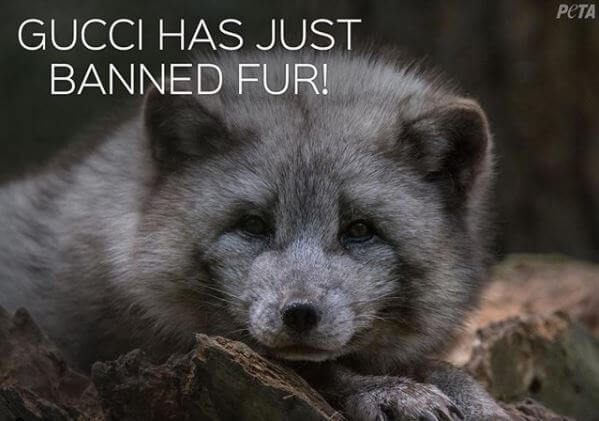
After pressuring Gucci to drop fur for over 20 years, Gucci CEO Marco Bizzarri announced that the fur-free policy will begin with the company’s 2018 spring collection
The world is becoming more compassionate. But we must still help the animals in the fur and skins industries as well as the employees, who, because of lack of education and opportunity, are exploited by companies that subject them to atrocious working conditions. They are as much victims as the animals they slaughter.
We must make change—there are no more excuses. It’s your turn to do something: Tag, you’re it!
To learn more about vegan alternatives and how the vegan fabric industries work, click here.


